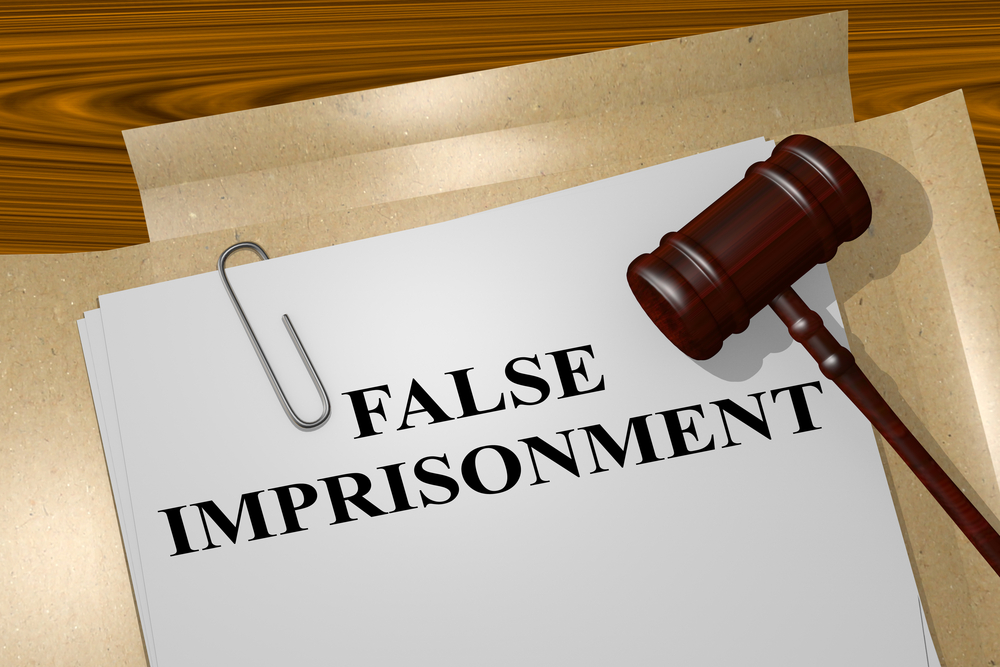
The Value Of Character Evidence
Attorneys often use whatever legal angles they can employ when defending a client. One interesting and sometimes debated issue is a concept called character evidence.
Overview
Character is descriptive terminology often used to demonstrate who you are as a person.
One side might attempt to portray you positively and highlight your attributes. However, the opposing faction will try and refute those claims. For example, if facing criminal charges, the prosecution in a criminal case might attempt to portray you as a deviant personality with questionable moral traits.
Practical Application
Character evidence is most often employed during a proceeding’s sentencing stage. It is not uncommon for prosecutors to utilize your past transgressions or behaviors in an attempt to convince adjudicating authorities that you deserve the stiffest possible penalties.
Is Character Evidence Admissible In Court?
Criminal law prohibits the use of character evidence during the trial phase. Therefore, prosecuting attorneys are not permitted to formally introduce your personality traits or attitudes as a means of convincing ruling bodies that you are a criminal or such behaviors and thoughts are the reason you committed the crimes you have been accused of.
That said, you and your legal team can introduce character evidence to rebuff claims made against you provided such testimony is pertinent to the proceedings at hand. However, prosecutors are also allowed to challenge and refute these claims.
The Differences Between Habit And Character
Unlike character evidence, one of the best drug case lawyers cautions that prosecutors are permitted to and often do use your documented habits against you.
In legal terms, habits are categorized as repeated questionable, deviant, or criminal behaviors. Courts deem habits as admissible evidence because they establish patterns of discernible, accomplished actions of consequence.
A case in point demonstrating habit could be an accused armed robber frequently visiting the location or locations said individual ultimately stole from over a period of time.
Prosecutors could potentially introduce this habit as evidence suggesting that the alleged perpetrator visited said establishments, neighborhoods, or entities solely as reconnaissance missions used to gather the information they needed to formulate plans to carry out such offenses.
Reaching Out To Brennan Law Offices
Topics like character evidence and habits can be complex and relatively confusing. However, when properly applied, they can have a profound impact on the outcome of your case. If you have been charged with a crime, we encourage you to contact me. Many past clients and legal officials widely consider William J. Brennan as the best criminal defense lawyer in Philadelphia.
For more information about this practice or the services offered, please stop by https://www.philadelphiacriminallaw.com/.
Read More
What Malicious Prosecution Is And What You Can Do About It?
When charged with a crime, you are entitled to due process, which might involve a trial or other legal proceedings. The legal professional attempting to prove your guilt is known as a prosecutor.
That said, this individual is expected to carry out their duties professionally and within all acceptable legal boundaries. Unfortunately, however, certain unscrupulous attorneys do not abide by such guidelines and may commit an illegal act called malicious prosecution.
Malicious Prosecution Overview
Basically, malicious prosecution occurs when a prosecuting attorney accuses you of a crime you did not commit.
Essential Elements
Legitimate malicious prosecution claims hinge on your capacity to prove five key elements, including the initiation of a legal proceeding against you, the prosecutor lacked any reasonable grounds to base such charges, said legal official possessed no true purpose for beginning the case other than to win a judgement against you, the prosecutor in question lost their original case against you, and you suffered some type of discernible loss as a result.
Can The Offending Lawyer Themselves Be Prosecuted?
Lawyers believed to have engaged in said actions can be brought up on civil and criminal charges.
Successfully Proving Malicious Prosecution
Success in a malicious prosecution suit greatly hinges on your ability to demonstrate the prosecutor lacked proper evidence to formulate a legitimate case. However, mere hearsay and refuted claims are not enough.
As the claimant, you and your Philadelphia criminal defense attorney need to produce some type of viable or documented proof, such as falsified or the submission of generated evidence, a deliberate failing to disclose key facts or evidence, the ignoring of testimony that no professional or experienced lawyer could rightfully deny, or failing to obtain testimony from important witnesses or experts.
Potential Damages
Should a ruling party like a judge or jury believe your claims, you might be entitled to compensation. Common remittances include the legal expenses you incurred. Other damages might be awarded like wages lost from missed work time spent preparing for and attending various legal proceedings. In legal terms, these are known as compensatory damages.
Moreover, you might also seek and be awarded punitive damages. These are separate rewards given out to victims of malicious or deliberate acts.
Contacting The Brennan Law Offices
If you believe you may have been the victim of malicious prosecution, you will want to choose from amongst the top PA criminal lawyers to represent you in such matters. The Brennan Law Group has handled several such cases and boasts a favorable track record in said endeavors.
To learn more about our firm, we ask you to visit https://www.philadelphiacriminallaw.com/.
Read More
What Can I Do When I Believe I’m Being Targeted?
A leading Philadelphia criminal defense law firm maintains that attention from a law enforcement establishment is not typically something you wish to garner. That said, on certain occasions, you might be targeted by said entities.
Less commonly, you might be targeted by unscrupulous individuals holding specific prejudices. However, under different circumstances, you might be targeted for your knowledge of or suspected involvement in criminal activity.
Regardless of the reasons, the actions taken during this time could make all the difference in determining the ultimate outcome of such events.
Examples Of Targeting Behavior
Unfortunately, persons carrying biases are employed in many industries and law enforcement is no exception. Such subjects might unfairly target you on the basis of your race, ethnicity, religion, gender, or socioeconomic background.
However, in other events, police and other law enforcement agencies might classify you as an official target. This means legal entities like prosecutors have enough evidence against you suggesting your knowledge or involvement in some type of untoward act.
That said, targets of investigations from entities like federal authorities are typically notified of such circumstances through official documentation.
Actions To Take If You Believe You Are Being Targeted
Regardless of circumstances, you are advised to not make any rash or emotional decisions. Offering ill-advised or misinformed responses, acting angrily, or making accusations could worsen your troubles.
In actuality, the first action a Pennsylvania resident should take is to contact an experienced and skilled Philadelphia criminal lawyer.
Should you believe targeting resulted from prejudices, you are encouraged to discuss these feelings with your defense lawyer. In addition to disclosing your suspicions, you should provide any evidence suggesting racially motivated actions like insulting statements or intimidating behaviors.
Your defense lawyer could then engage in efforts like investigating the officer or department’s past history and research if others experienced similar treatments.
If targeted by a prosecutor, your defense lawyer can advise you of the most appropriate ensuing actions to engage in. Oftentimes, target letters contain information regarding what authorities request from the intended recipient. For example, the government might ask the target to provide information.
An astute defense attorney might be able to negotiate a deal where you receive immunity from eventual prosecution should you cooperate with such demands.
Contacting Us
The Brennan Law Offices employs a team of attorneys capable of handling all types of targeting cases. For further information about us, please visit https://www.philadelphiacriminallaw.com/.
Read More
What Is And Isn’t Admissible In Court?
Success in a criminal trial often hinges on your and your legal team’s ability to provide evidence supporting your innocence. That said, a criminal attorney in Philadelphia wants you to know that any evidence used in a court setting must be ruled admissible.
Admissible Evidence Overview
Prior to being designated as official evidence, several factors play into classifying said material as admissible or inadmissible. Any piece of evidence entered into consideration is differentiated into two distinct categories, relevant and reliable.
Relevant means the presented material either demonstrates or contradicts a given fact or theory put forth as the case progresses. Reliability refers to the evidence’s source. In most cases, this references witness testimony. For example, if the witness in question has a shady record, the information they provide might be considered questionable in nature.
Inadmissible Evidence
Your white collar crime attorney in Philadelphia stresses that evidence might be labeled inadmissible under the following circumstances:
Provides Misleading Information
Such testimony tends to attempt to mislead juries or other ruling parties away from the issue at hand. A solid example of this is an accused party’s lifestyle traits being used against them in a criminal proceeding.
Fails To Meet The Expert Testimony Criteria
As its name implies, expert testimony is only permissible if offered by individuals deemed experts on the topic in question. Persons not considered experts cannot offer such expertise.
Is Considered Hearsay
This occurs when one party attempts to enter third-party evidence into a legal proceeding. For example, courts will not consider claims that one individual made against the other regarding events unrelated to the issue at hand or without documented proof backing up such claims.
Appears To Be Prejudicial
Evidence is almost always considered inadmissible if said material is prejudicial. Examples of such evidence are statements coming from individuals holding leaning biases or presented to solely arouse anger or any other type of negative emotion.
Serves No Additional Purpose
Sometimes, certain pieces of evidence serve no intended purpose. A case in point is endless witness testimony demonstrating a trial participant holds a specific personality trait. After a while, all such efforts slow down the proceeding’s progress and waste precious time.
Determining Admissible Evidence
As evidence is the backbone of any legal undertaking, said material must be carefully reviewed and analyzed. Therefore, if you are facing possible criminal charges and know of or possess evidence you believe supports your innocence, you are firmly urged to consult with an experienced criminal defense attorney such as those employed at the Brennan Law Offices.
We are a skilled team of knowledgeable lawyers with a proven track record in criminal cases. To learn more about us, please visit https://www.philadelphiacriminallaw.com/.
Read More
How Prior Convictions Affect Legal Proceedings
There are a number of things that can affect your legal proceedings. This includes prior convictions. There are several ways that prior convictions can affect your legal proceedings.
Prior to the Trial
Your prior convictions can impact your case long before it even goes to trial. The officers can look at your record and see the prior convictions. Even if you have had your record expunged, your officer may still be able to see this. If this is your second or third time committing a crime, then you could possibly be charged with a felony.
Harsher Sentences
It is a good idea for you to contact one of the local criminal lawyers if you have been charged with a crime. The prosecutors already try to come down hard on people. However, if you have prior convictions, then they will try to come down on you even harder. Prosecutors argue that people who have prior convictions are a threat to the public because they are likely to commit the same crime again.
Your prior criminal history is something that may be brought up during the trial. However, not every prior conviction can be used in court. Most judges will only allow prior convictions to be brought up if the crime occurred within the past 10 years.
Prior convictions often explain why two people can be charged with the exact same crime, but one gets a much longer sentence than the other. Not only will you face a longer time in jail, but there is also collateral damage that can come from this.
For example, if you are charged with a new crime and have prior convictions, then you may lose your eligibility for public assistance. You may also not be able to vote or possess a firearm. Furthermore, it may be harder for you to get a job. Your entire life can change for the worse.
What Do I Need to Do If I Am Facing New Criminal Charges And Have Prior Convictions?
The stakes are high if you have prior convictions and are facing new criminal charges. You need someone who can offer experienced and aggressive legal defense for you. Criminal law attorneys in Philadelphia will fight hard for you. They believe that everyone is innocent until they have been proven guilty in the court of law. Your attorneys will make sure that you are defended to the fullest extent possible.
Read More
What Happens If I’m Charged With the Wrong Crime?
If you have been charged with the wrong crime, then it is a good idea for you to contact a criminal law defense attorney. Your attorney can defend you in court. There are also several things that you can do in order to help your attorney.
Avoid Incriminating Yourself
It is not a good idea for you to argue with law enforcement about the accuracy of the charges. If you do this, then you will be incriminating yourself. The law enforcement officer will charge you with the crime that they think that committed, and they will be given to the state prosecutor.
You Can Argue for a Lesser Charge
Many people are arrested for what they think is a minor crime and then later find out that they have been charged with a more serious crime. For example, you are caught with a small amount of an illegal substance. This type of crime is typically charged as a misdemeanor. However, you could be charged with a felony.
Your criminal defense attorney in Doylestown, PA can argue for a lesser charge. They can prove that there is not enough evidence to prove that you should be charged with a more serious crime. Everyone wants to get their case dismissed, but this may not be a realistic option. That is why your attorney will likely argue for a lesser charge.
You Can Argue That It Is Not a Felony
Prosecutors and judges can reduce the charge from a felony to a misdemeanor. They can argue that the actions were not serious enough to constitute a felony. Drug charges, assault and theft are examples of crimes that can be reduced from felonies to misdemeanors. They are considered wobblers. This means that the judge or prosecutor can determine whether they are a misdemeanor or a felony.
You Can Claim That There Is A Clerical Error
Your criminal charges may be the result of a clerical error. If there are clerical mistakes, then there is a possibility that you will get your charges dropped. A competent attorney can help you get your case acquitted or dismissed.
You Can Say That It Wasn’t You
If you have been charged for a crime that you did not commit at all, then you and your attorney will have to prove that it wasn’t you. The attorney can prove that you were somewhere else at the time the crime was committed.
Read More
What Do The Police Need To Get A Warrant?
Gathering evidence and solving crimes can be a complex process. Therefore, law enforcement agencies often have numerous tools at their disposal. However, in many cases, such tools must be used by procedure and law.
One such mechanism a criminal lawyer urges you to familiarize yourself with is known as a search warrant.
Search Warrant Overview
A search warrant is a legally-binding document authorizing the obtaining authorities to conduct a thorough search of a specific residence or commercial property. Warrants are most commonly associated with drug seizures. However, they may be employed to search for evidence of other high-profile criminal offenses.
The Process Of Obtaining A Search Warrant
In Pennsylvania, gathering a warrant requires the completion of several critical steps.
First, the law enforcement agency in question must petition a court of law using a legal instrument called an affidavit. Contained in this written statement is a plea to the presiding judge explaining the reasons the warrant should be granted.
Police must also demonstrate probable cause. This means the entity in question has enough evidence to rightfully assume a crime is being committed and a warrant will help gather the proof needed to confirm their suspicions.
Moreover, if the evidence in question was provided by a police informant, judges must employ the following criteria to determine if said subject’s testimony is credible, previous reliable testimony, the individual’s story is confirmed by another party, the information given was not offered to suit their interest, and if the alleged perpetrator’s reputation supports the informant’s claims.
The Execution Process
Should a law enforcement agency be granted a warrant, execution is also subject to certain mandates.
First, warrant-possessing police units must knock on the door of your home or business, declare they are the police and show the warrant.
That said, authorities might have the legal right to forcefully enter the construction in question provided you fail to respond after a reasonable amount of time has elapsed, you know the reason the authorities are there before their arrival, obvious safety concerns are present, or police believe you are deliberately eliminating evidence.
Additionally, warrants must be performed between 6 a.m. and 10 p.m. Warrants can be executed outside this timeframe. However, the desiring authorities must clearly demonstrate to a judge why the process should be executed during late evening or early morning hours.
Furthermore, the warrant must be signed and dated by the issuing judge, identify the property in question, name the people and specific property to be searched, and disclose the timeframe within which the search must occur.
Contacting Us
If you were subject to a search that did not meet these criteria, you may have a case against the executing authorities. In such instances, you are urged to consult with a defense attorney in Philadelphia like those employed at our firm the Brennan Law Offices.
To learn more about us, please visit https://www.philadelphiacriminallaw.com/.
Read More
What Are My Options If I Believe a Police Officer is Targeting Me?
It goes without saying that police officers are supposed to be the good guys. Most people picture loyal civil servants that are not paid especially well but ready to potentially put their life on the line in a dangerous situation to protect and serve others. This rosy picture of the profession is nice and all, but the reality is that police officers are people, and there are going to be ones that fall short of society’s expectations for what is often portrayed as heroic figures.
So, what if you feel like a police officer particularly has it in for you and is openly targeting you? It happens, and it can be a real problem for you because the police officer often has the upper hand in more ways than one. After all, the officer seemingly has the law on his or her side. Then, there is the unfortunate fact that in a war of words, the police officer may be more likely to be believed. After all, if you go to the police complaining that the police are harassing you, there are some serious conflicts of interest there. When you’ve pursued these ordinary channels with no results, it may be time to turn to a Philadelphia criminal lawyer to protect as you fight the powers-that-be.
You are taking on an institution in this case, and the last thing you want is for more members of the police fraternity to get it in for you because they think you are not telling the truth or trying to get one of their brotherhood in trouble. Go on the defensive and offensive at the same time by finding a criminal lawyer. They will have the experience and knowledge to take on the police department itself and make sure that not only are you safe from harm but that you also have an opportunity for possible compensation for the stress of the situation you have been dealing with.
The police are supposed to protect you, but we have to face the facts as a society that not every police officer lives up to their oath of service. If you believe that you are the target of unwarranted harassment at the hands of the local police, it’s probably in your best interest to make sure you have good representation lined up before you try to take them on. This is not a matter to take lightly.
Read More
What is the Penalty for Being Held in Contempt of Court?
What is Contempt of Court?
Contempt of court is defiance or disrespect of a judge or court. To control their courtrooms and compel people to obey court orders, judges are given the prerogative to jail people who defy them.
Contempt of court charges are not like ordinary criminal charges. The judge who imposes them does not have to prove anything, and you have no right to a trial by jury. The judge has the sole right to find you in contempt.
On the other hand, the judge has to offer you a reasonable way out. If you comply with the court’s orders, you can be released. If you don’t, then you can stay in jail for as long as you can be stubborn.
In United States law, contempt of court can be considered either direct or indirect.
Direct Contempt of Court
Direct contempt of court occurs when you behave in a disorderly way inside the courtroom. Generally, this involves impeding the process of a trial, disobeying the orders of a judge, or being rude to a judge. The purpose of this power is to keep people from disrupting the legal process. A judge will usually warn you that your behavior runs the risk of incurring contempt charges, and give you the chance to correct your behavior. If you persist, you may be jailed until you apologize and promise to follow the judge’s rules in the courtroom.
Indirect Contempt of Court
Indirect contempt involves failure to comply with a court order. When a legal order demands that you perform or refrain from certain actions, and you violate that order, you are in indirect contempt of court. In failing to obey a legal order, you have broken the law, and can be jailed until you return to compliance.
Many cases of indirect contempt arise from violations of restraining orders. Perhaps the most common cause is failure to abide by a divorce agreement. If you don’t pay alimony and child support as ordered by the court, or if you don’t abide by the custody agreement, you could be found in contempt of court.
What to Do if You’re Facing Contempt of Court Charges
Contempt of court charges can be very difficult for you to deal with alone. If you’re facing these charges, you need the services of our criminal lawyers. The Philadelphia criminal defense attorney firm, Brennan Law Offices offers the services you need to deal with contempt of court charges.
Read More
What Is False Imprisonment?
False imprisonment is when a legal entity deliberately restrains another entity’s freedom of movement without any legal authority or justification whatsoever. A prime example of a false imprisonment situation is the “gun to the head” trope; if someone is holding a gun to your head, demanding you to do something or face the consequence of death, they are limiting your freedom of movement without legal authority. False imprisonment can be a criminal or civil issue and it is important to have a criminal defense attorney ready to help.
Three components must be demonstrated for a civil lawsuit to claim false imprisonment: the detention must have been deliberate; it must have been without consent; it must have been unlawful. These three principles must be proven either beyond a reasonable doubt in a criminal case, or more likely than not based on a preponderance of the evidence in a civil one.
There are counters to false imprisonment claims. One of these is voluntary consent. This is the most obvious one, being the assertion that the plaintiff did consent. Another defense is police privilege. In the case of law enforcement false imprisonment cases, the police can claim probable cause as a defense. Probable cause is the privilege that law enforcement officials have where they may bypass certain legal steps such as obtaining a warrant or securing legal authority to imprison someone if they have sufficient reason to believe a subject has engaged in wrongdoing.
When it comes to criminal differences, false imprisonment and kidnapping may seem like more or less identical crimes. Kidnapping involves maneuvering an individual away from a set location and to a new place against their will. The operative phrase in this definition is “new place.” False imprisonment involves unfairly tying an individual down to their current location rather than moving them to a separate one. While state laws are different, both false imprisonment and kidnapping may become serious criminal charges and require criminal attorneys.
If you believe or have been notified that you are involved in a criminal false imprisonment case, there are options. Contacting our criminal attornies, if you’re living in the Philadelphia metro area, is a necessity. When pursuing a criminal defense attorney, it is vital to know the specific claims and defenses of the false imprisonment charge levied against you, and how to deal with them. Be honest with your attorney, and don’t forget to call for help in sticky legal situations like these.
Read More